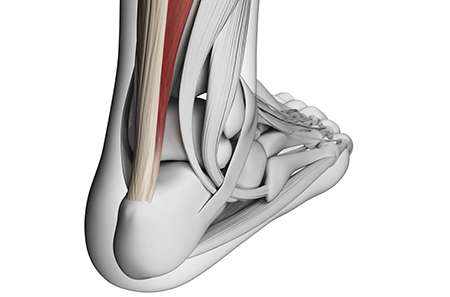Clues to the ageing of tendons unlocked for the first time

University of Liverpool scientists have examined the mechanisms that cause ageing in the tendons of horses, opening up the possibility of better treatment for humans.
It has been understood for many years that tendons are highly prone to injury and that this likelihood increases as they age. Why this happens, is currently poorly understood
Now, using samples taken from young and old horses, which have similar tendon properties to those of humans, the team of researchers, which also included scientists from Queen Mary University of London, performed a range of tests to profile the types, quantities and proportions of proteins present in the tendon.
They found marked differences in the proteins in young and old horses, as Chair of Musculoskeletal Biology. Professor Peter Clegg explains: "Injured tendons are extremely painful and limiting in humans and we know that this increases as we get older.
"We're now starting to get to the 'why' of this process by showing that the proteins produced by the cells to repair damage alter as we get older."
The findings of this research also showed that certain protein fragments appear in greater quantities in older horses, suggesting that they are released as the tissue is slowly damaged over time.
In contrast, damaged tendons in younger horses were found to contain more of the proteins used in healing than the damaged samples from old horses, suggesting that healing also slows with age.
Professor Clegg said: "This now opens up the possibility of better treatment and prevention strategies to address tendon injuries in both man and veterinary species such as the horse."
More information: Mandy J. Peffers, Chavaunne T. Thorpe, John A. Collins, Robin Eong, Timothy K. J. Wei, Hazel R. C. Screen, and Peter D. Clegg. "Proteomic analysis reveals age-related changes in tendon matrix composition, with age-and 1 injury-specific matrix fragmentation." J. Biol. Chem. jbc.M114.566554. First Published on July 30, 2014, DOI: 10.1074/jbc.M114.566554
Provided by University of Liverpool


















